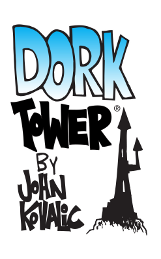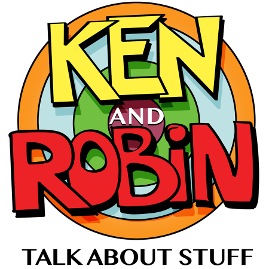Episode 32: Cash in Your Magic Swords
March 29th, 2013 | Robin
 Scoops of polyhedrals in hand, we enter the Gaming Hut to contemplate the power of experience points. Are they justified in a genre-emulative design?
Scoops of polyhedrals in hand, we enter the Gaming Hut to contemplate the power of experience points. Are they justified in a genre-emulative design?
In Ask Ken and Robin, Darren Watts asks Ken to explain how zombies can be one of the two great 20th century myths, since this means either Superman or Godzilla aren’t?
Science Hut puts American exceptionalism under the microscope, or at least sits it down in a room and offers it a sociological marshmallow. Have scientific theories of human nature met their WEIRD?
Finally we meet the Consulting Occultist in the non-standard confines of the Tradecraft Hut, where we open an Elizabethan dossier on spy and playwright Christopher Marlowe.
Podcast: Play in new window | Download
















For Ask Ken and Robin: Huzzah! I’m loving the historical bits tossed forth from your genius. I was wondering if you could grab your crystal balls and dive back into the early origins of U.S. spiritualism. When did it truly start? How did the trend take off?
It started with Maggie Fox, who we talk about in episode 22. Though our focus there is more biographical than about the growth of the movement itself.
I’d argue that the Chaucerian “smyler with the knyf under the cloke” is a precursor to the serial killer/werewolf formation.
The smart-but-bestial almost-human who lives among and preys upon humans–the mythological antecedent of the werewolf and the serial killer–is at least as old as the Arabian Nights’s ghuls, but is probably orders of magnitude older. E.g., I don’t know if there’s any way to know how far back the wendigo myth goes, but it certainly pre-dates significant old world-new world contact.
I’ve been tossing the core question here around in my brain for a few days. It’s hard to draw a sharp line and say “This accumulation of ideas is a genuinely new mythic structure.” Yes, Superman is the newest version of Hercules, but there’s no classical equivalent of Clark Kent, and in a lot of ways it’s the dual identity that gives Superman much of his mythic power. The nebbish/fop secret identity goes back to the Scarlet Pimpernel–still 20th century, but just barely.
The zompocalypse draws on a lot of the horrific depictions of the Black Death, combined with vampire/revenant/ghoul imagery (the older, corpse-ish tradition, not the post-Stoker sexy sexy one) , fused with science apocalypse imagery.
I were to suggest two truly mythic imprints of the 20th century, I would suggest nuclear Armageddon (a truly fictional construct) and the Holocaust (a totally real one). There were myths of armageddon before 1945, but the amoral, mechanical, literally push-button end of the world is at least as different from previous eschatons as Cthulhu is from Zeus.
And there have been cultural annihilations before, but the Nazi wedding of genocide and industrialization created a new type of horror.
(I’m casting around for some *positive* mythic image of the 20th century. A lot of the positive mythic imprints of the 20th century–computers, the highway, actually effective medicine–really are amplifications of ideas that caught root in the 19th. We haven’t quite had time to incorporate our digital lives into myth.)
Re: theatre as a ritual: IIRC Golden Dawn rituals were publicly performed in France as theatre.
a topic for Ask Ken and Robin,
Ken has said a few times that Ghostbusters is one of the best licensed games but as I’ve never had the opportunity to see a copy much less read or play it, I was hoping we could be told WHY it’s so good and what it did which keeps it in such high esteem for Ken.
Dear Ken & Bunbasher,
Another excellent pod cast. Keep up the good work. I would like to second Eric’s question – Ken does not appear to be alone in this opinion – what made the Ghostbusters such a cracking example of the form?
What’s the deal with the Illuminati infiltrating the hip-hop industry? Surely, the Consulting Occultist knows a thing or two about this.
As I have listened to all 32 shows, I am due to get another level in KaRTAS after listening to the next episode.
During character generation I rolled my starting location to be Western New York which means I get to buy Canadiana skill points at half cost, but I have so wanted to raise my Elliptonics score.
Decisions, decisions.
Looking forward to leveling up soon, keep up the great podcast!
Allow me to submit Shaggy and Scooby Doo for review as original archetypes of the 20th Century. They are “heroes” who accomplish, or help to accomplish, success through their own cowardice and incompetence. I don’t think that there are any such heroes in literature like them prior to “Scooby Doo.” (Note that I pull this idea from Eddie Izzard, the great British comedian.)
No heroes who accomplish, or help to accomplish, success through their own cowardice and incompetence prior to “Scooby Doo?
What about the fools and clowns of Commedia dell’Arte (or even Shakespeare)? What about Dionysus in the Greek Comedies? Or Pigsy in ‘The Journey to the West’?
The hero who succeeds through sheer folly abounds in human culture!
Nit-pick: You’ll find ‘the fair Marguerite’ in Gounod’s opera (who got it from a play based on Goethe who gives her name as Gretchen), not Marlowe. Marlowe’s Faustus was more into intellectual reasons for selling his soul, though Mephistopheles does throw in sex with Helen of Troy as a sweetener to keep Faustus on side when he’s thinking of repenting.
I was about to pick the same nit.
Might as well add one more nitpick for the record: The John M. Ford novel is The Scholars of Night, not The School of Night.
The myth of the 20th Century:
The Rocket
It’s the missile of atomic doom, or the spaceship bound for the stars, all in one package.
[…] Cash In Your Magic Swords […]
I love the WEIRD article. As an social scientist with a background in anthropology/history I’ve been saying this for years. In fact I’ve blown several physiologist’s arguments out of the water by pointing out the lack of diversity within the sample set.
And don’t worry about it destroying all social science. Anthropologist have known this for years and have been working around and through this for years.
On Ken’s good word I’ve picked up a copy of The Reckoning. The slightly battered copy is sitting beside me waiting to be read. More book recommendations, please!
Very much enjoying this episode. I like the Day After Ragnarok solution to the Soul of the Orc: rather than coopting the racism of the source material, Ken casts the racists themselves as the faceless agents of evil. They are vile because they have chosen vileness–a very democratic villain!
Christopher Marlowe makes an appearance in a 1956 radio interview with William Shakespeare, as pointed out to me by Kitchenerite curmudgeon and old-time-radio devotee James Nicoll. Marlowe is played histrionically by the great Hans Conried, rather stealing the show. (You want histrionics? Hire Conried.)
One might think of this radio series as a kind of ancestral podcast. Here’s an MP3 of the episode “Colloquy #1: Interview with William Shakespeare” from CBS Radio Workshop.
The interviewer is Prof. Frank C. Baxter of the University of Southern California. He was all over educational television in those days. Since I was not yet old enough to reach the knobs, I know him as the genial personification of Science in the Bell System Science Series films shown to my high school classes. Fans of Mystery Science Theatre 3000 tell me Prof. Baxter is better known to them as the learned guy who introduces The Mole People with a lecture on hollow-earth mythology.
Hans Conried wasn’t the only future Rocky and Bullwinkle player involved in this episode, either; corpulent man-about-radio William Conrad, Bullwinkle’s narrator, plays 16th-century actor Richard Burbage.
Read chatter about this program on James Nicoll’s blog here.
Sorry my first comment here is a gripe, but it appears this particular episode is missing. So here it not-sits in its absence, mocking my driving need to consume meadia in serial order, perfectly blocking me by failing to fill space at all.